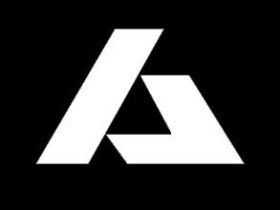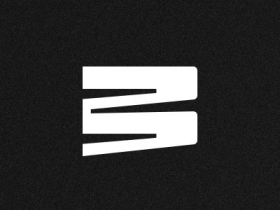The software development and technology industries are always changing. GitHub is one resource that has continuously shown to be indispensable in this world. GitHub is a central location where developers get together to work on various projects and applications. It is frequently referred to as the “Facebook for programmers.”
An overview of GitHub and its use in the creation of software
GitHub is an important software development tool because it makes code sharing, collaboration, and efficient code management easier. Although GitHub serves as a global hub for programmers and coders, its benefits go beyond simple social networking.
GitHub provides programmers with a dynamic platform to host their code since it is a cloud-based service. GitHub is essentially a code hosting platform that houses the code for different projects. For every project, developers can create a unique repository, guaranteeing best practices, especially with larger projects.
Moreover, GitHub’s cloud-based architecture makes it a very dependable and reachable resource. This implies that even in the event of an unplanned computer malfunction, projects are secure and accessible from any location.
Knowledge of GitHub and Git
Git is a potent version control system, and GitHub’s integration of it is one of its key features that makes it an indispensable tool for software developers. Let’s take a closer look at how GitHub and Git function in order to comprehend how this operates.
Git
Linus Torvalds, the man behind Linux, developed Git, a free and open-source version management system, back in 2005. Git maintains a complete history of all code modifications made by developers and provides them with a “time machine” that lets them roll back project versions whenever necessary.
Git takes a snapshot of every file at any given time as developers make changes to the code and saves it. It cleverly stores only the modifications made during each snapshot management session. Git makes modifications quick and offline work simple by allowing each developer to have a complete local copy of a project’s history.
Git allows developers to work concurrently on many functionalities thanks to capabilities like branching and merging. When the feature is complete, it can be included into the main source code. When several developers collaborate on a project at once in a team environment, this Git feature really comes in handy.
GitHub
Git is a tool for locally tracking changes in code on a computer, but GitHub goes one step further by enabling cloud-based code tracking. It’s a web-based repository hosting service for Git. Put more simply, GitHub is a platform that hosts code and makes working with others easier.
Using GitHub, developers may upload their local code repositories to distant servers, backing up their data locally and facilitating cross-team collaboration on the same project without inadvertently trampling on each other’s toes. It presents a simple method for making changes, reporting problems, and contributing to projects. It’s simple to share work with others on GitHub as each repository has a unique URL.
The Unique Features of GitHub
GitHub stands out from other software development platforms with a feature set of powerful tools that all work together to make coding and teamwork easier. The following are a few of GitHub’s unique features:
GitHub Utilization
Software workflow automation is revolutionized by this feature. Developers can design unique processes that build, test, package, release, or publish their code automatically with GitHub Actions. Different GitHub events, such as pushing a new commit, generating a pull request, or even scheduling them, might start these workflows. Because fewer manual errors occur and the developers have more time to work on more important projects, this degree of automation can greatly boost productivity.
Pages on GitHub
One tool that allows you to host static websites straight from a GitHub project is called GitHub Pages. Thus, without having to handle a different hosting provider, users can host project, organizational, or personal pages from a GitHub repository. These web sites can function as a platform for users to display anything they wish the world to see, as well as a portfolio or project documentation. Static site generator Jekyll is embedded into every site on GitHub Pages, making website building simple. GitHub Pages also supports custom domain names.
GitHub Desktop
With GitHub Desktop, complicated Git commands are reduced to a simple, easy-to-use graphical user interface (GUI). From the comfort of a graphical interface, developers may track changes, create branches, commit changes, and carry out a host of other operations. For novices who might be scared of the command line, GitHub Desktop is very helpful.
Pull Requests
You can contribute to projects by making pull requests. Developers can suggest improvements with this functionality, and those suggestions can be integrated into the main project. Pull requests give a visual representation of the content differences between the two branches, making it easier to understand the suggested changes. Green and red indicate the additions, subtraction, and modifications.
Tracking Issues
The integrated issue tracking feature of GitHub aids developers in efficiently handling project responsibilities. Users can create issues, which are representations of tasks, recommendations, or defects that can be ranked and labeled with milestones. It is simple to collaborate and solve problems when other team members may provide feedback on the problems.
Code Evaluation
GitHub’s pull requests and inline commenting tools facilitate code review, an essential step in the software development process. Within the GitHub interface, users can request changes, highlight lines of code, ask questions, and suggest alternatives.
Aspects of Security
Making sure the developer’s work is secure is crucial when it comes to code development. GitHub is a well-known software collaboration platform that provides a full range of security capabilities to guard the code against threats.
Combinations
GitHub provides a wide range of system connections because it acknowledges the collaborative nature of software development. By smoothly combining many platforms and technologies, these integrations promote a unified and efficient development environment.
Getting Revenue from GitHub
GitHub not only facilitates collaboration and education, but it also enables people to make money off of their abilities. The two noteworthy methods listed below can help developers turn GitHub into a profitable revenue stream.
Software Creation and Marketing
Programmers with experience can use GitHub as a marketplace for creating and selling software. Developers are able to make money from their coding skills by developing creative software systems and applications that benefit businesses or users. Creating plug-ins, applications, and tools to fulfill particular requirements or improve current workflows falls under this category. Innovative and useful solutions like this have the power to sell well and position developers as manufacturers of superior software solutions.
Establishing a Solid Reputation
An impressive demonstration of a developer’s skills and knowledge can be found in a well-designed, diverse GitHub repository. Tech businesses are always looking for bright people, and having a strong GitHub portfolio can help you get noticed by employers. Developers can present themselves as beneficial assets to companies by showing a variety of projects, proving their coding skill, and displaying their ability to work collaboratively. This may result in full-time jobs at esteemed tech businesses, part-time gigs, or even freelancing chances.
GitHub Sponsors Initiative
The GitHub Sponsors program is one of the more recent ways to make money on GitHub. Through this program, people can give money to developers whose contributions or projects they value. Users have the option to sponsor their project, give one-time gifts, or sign up to provide ongoing monthly support, making this a more direct method of making money. For developers working on open-source projects, this type of patronage might be especially advantageous.
GitHub’s Security, Cost, and Other Downsides
It’s important to think about safety when using any digital platform. Public repositories expose code to anybody, possibly even hostile actors, despite GitHub’s security features like two-factor authentication and alerts for risky dependencies. But these security worries are mostly allayed by the safeguards that GitHub has put in place, which makes it a rather safe site for code hosting.
Regarding costs, GitHub provides both free and paid services. While many of GitHub’s features are available to free users, premium subscriptions provide further advantages like access to more private repositories and sophisticated code review tools.
However, even with all of its advantages, GitHub could have some disadvantages. For starters, it can be challenging and have a steep learning curve. Using public repositories also carries the danger of exposing code.
Software Development’s Future with GitHub
GitHub is a dynamic tool that is influencing the direction of software development rather than merely being a platform for hosting and managing code. Its vast features facilitate open-source contributions, streamline cooperation, and even provide avenues for work to be monetarily supported.
GitHub has enormous potential for anyone, be they an expert developer, a beginner programmer wondering how to utilize it, or someone who is just really interested in technology. In the wide world of software development, it offers the tools needed to learn, develop, work together, and innovate. Take use of GitHub’s strengths and dive in to help shape the digital future.






Leave a Reply